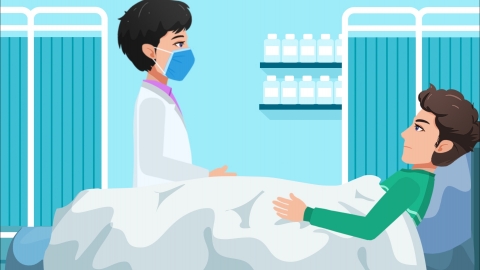Is hospitalization required for gastrointestinal bleeding?
Generally, whether hospitalization is required for gastrointestinal bleeding depends on the volume and rate of bleeding, as well as the stability of the patient's condition. If the bleeding volume is small, the condition is stable, and there are no signs of ongoing bleeding, hospitalization is usually unnecessary. However, if the bleeding volume is significant, the patient's condition is unstable, or there is a risk of continued bleeding, hospitalization is necessary. Detailed explanations are as follows:

If the gastrointestinal bleeding volume is small and the patient only experiences minor melena without hematemesis, palpitations, dizziness, or other discomforts, and if the physician determines after examination that the condition is stable with no risk of ongoing bleeding, hospitalization is usually unnecessary.
When gastrointestinal bleeding is substantial, and the patient experiences hematemesis, significant melena, or symptoms such as palpitations, dizziness, or pallor, or if tests reveal an underlying cause with a risk of ongoing bleeding, hospitalization is required. During hospitalization, doctors can closely monitor the patient's vital signs, control the bleeding through intravenous fluids, blood transfusions, or endoscopic hemostasis, and treat the underlying disease to prevent deterioration.
To reduce the risk of gastrointestinal bleeding and promote recovery, it is recommended to maintain regular eating habits, avoid spicy, hard, or irritating foods, quit smoking and alcohol consumption, and reduce damage to the gastric mucosa.







